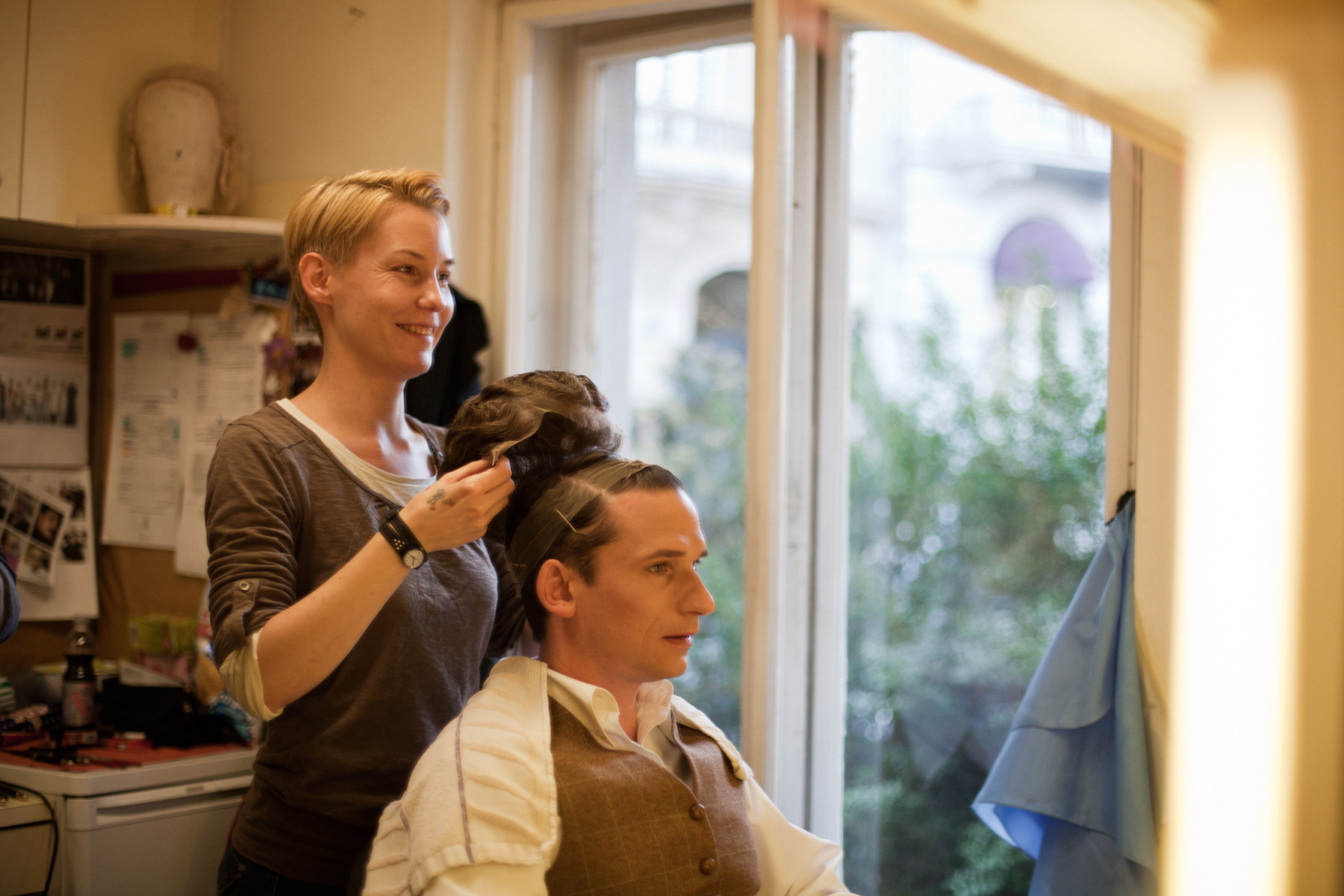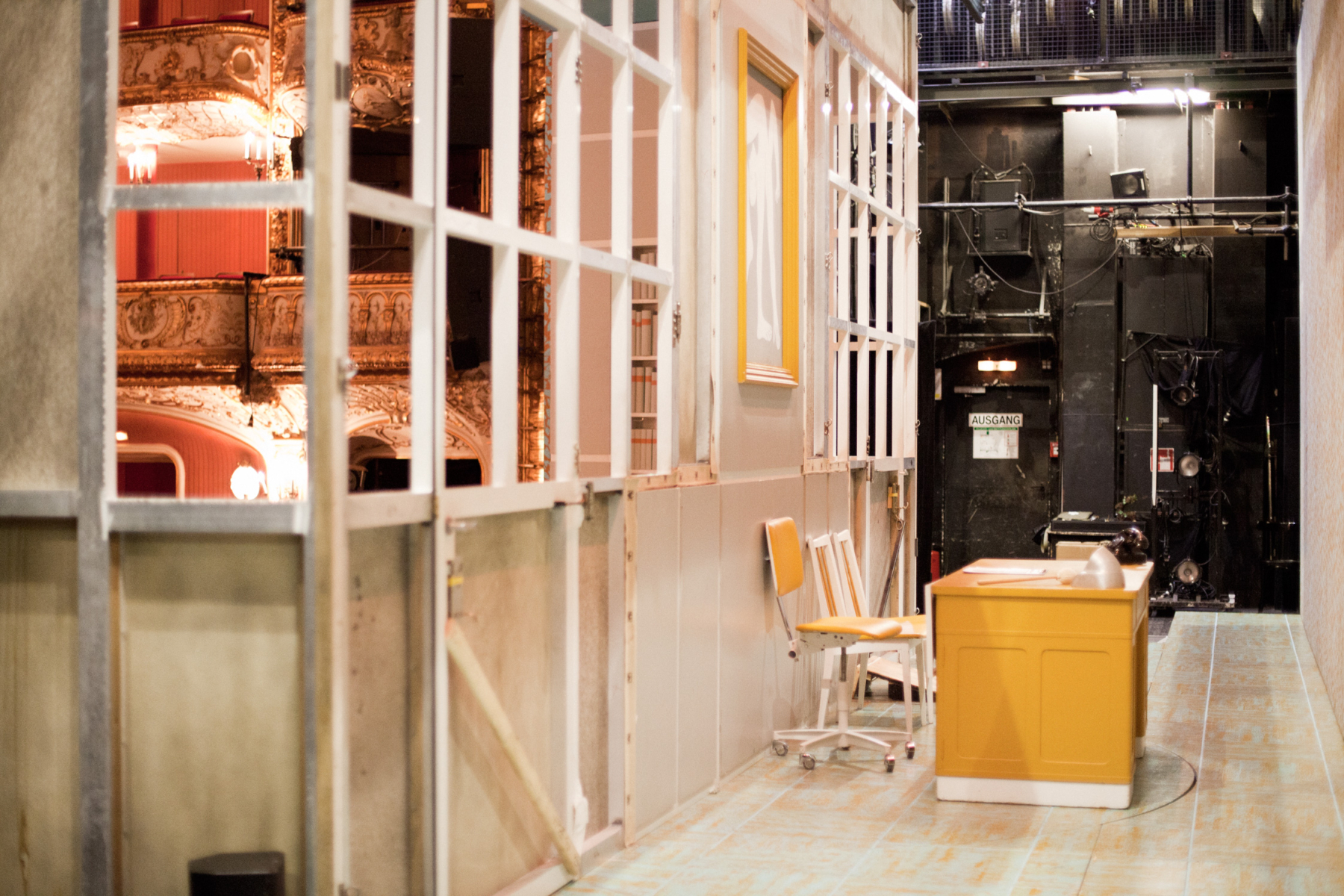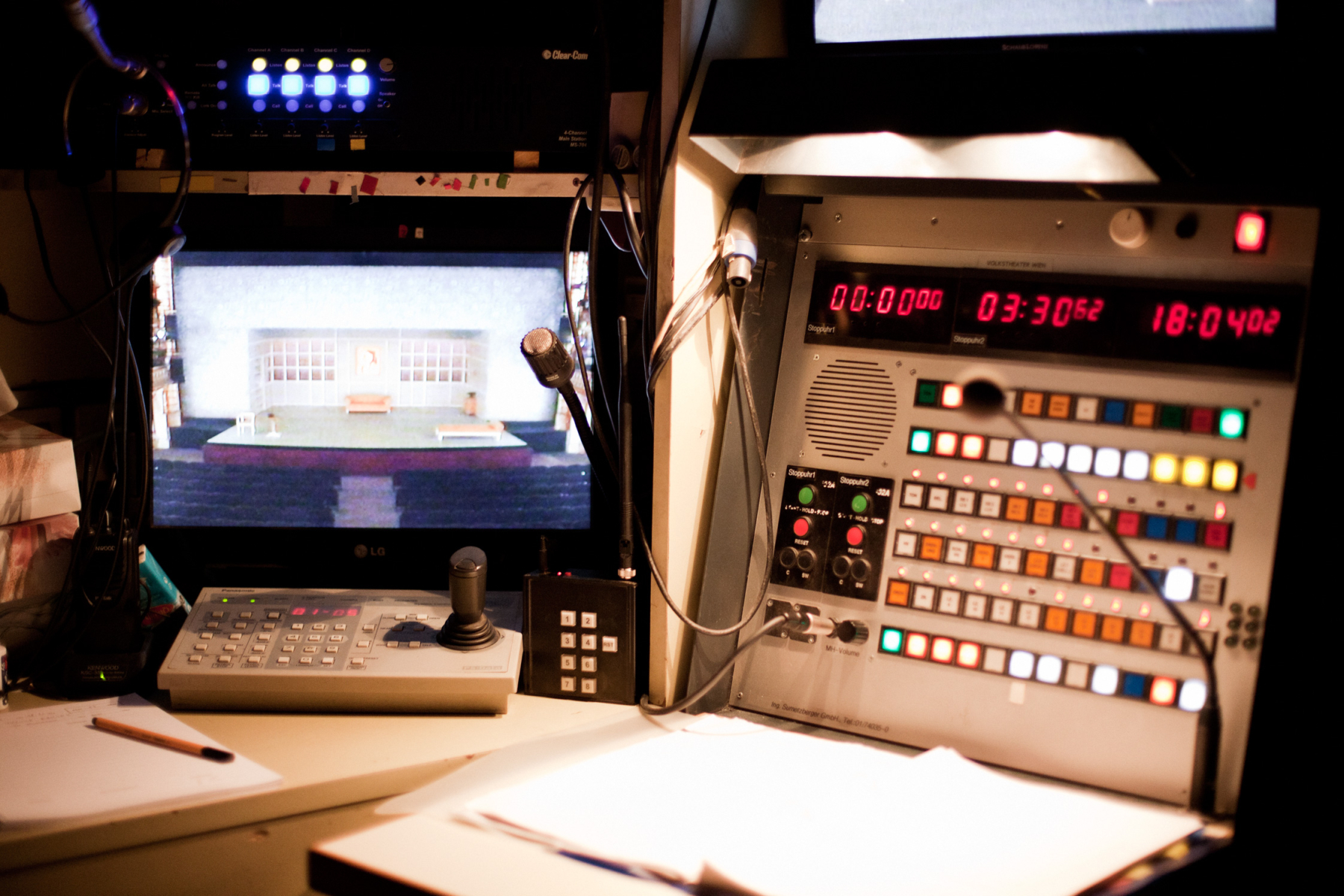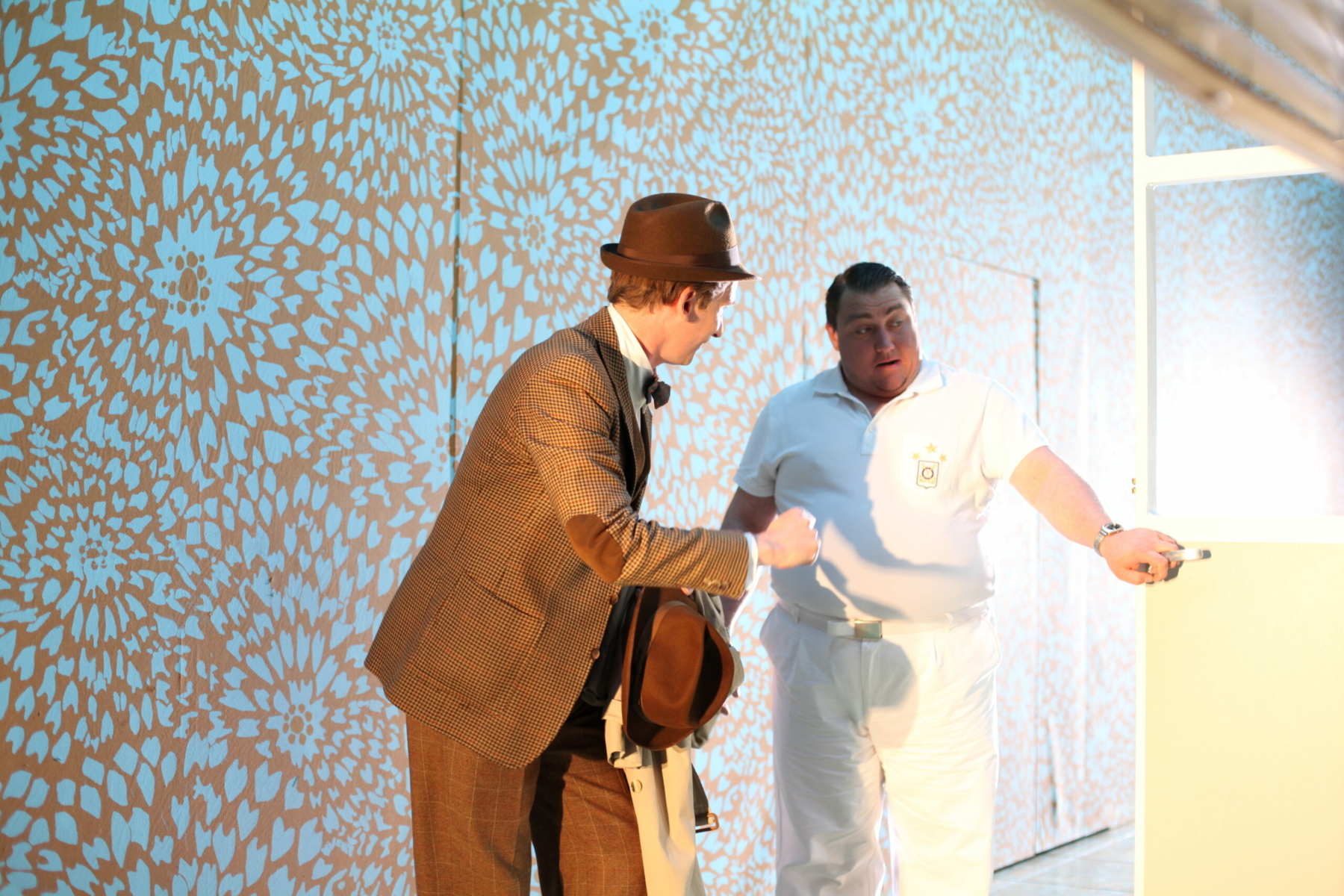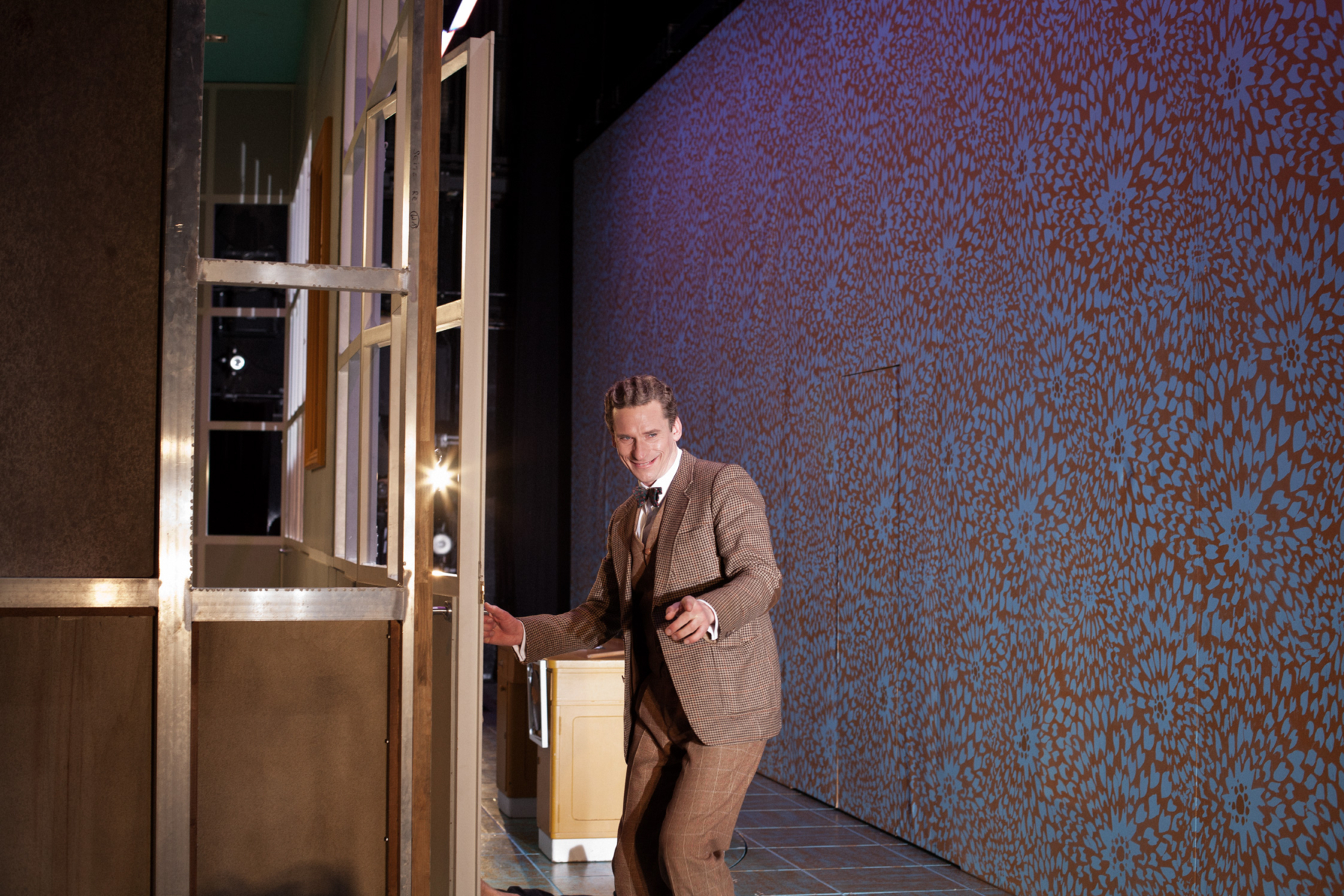According to Till Firit, Austrian Radio is one of the reasons MONO VERLAG came into existence. After having completed his education and spending the first years of his career as a serious actor, the German native came to Austria’s capital for a job at the Volkstheater. While in Vienna he searched for voice-over artist jobs for the Austrian national public service broadcaster ‘ORF’ (Österreichischer Rundfunk) without success. However, instead of waiting around, Till decided to take matters into his own hands by recording and producing his dream project “The Gambler” by Dostojewski, and just like that, Mono Verlag was born.
A few years later with some personal restructuring, MONO VERLAG – the first Austrian publishing company to solely concentrate on audiobooks – relocated to a beautiful backyard house within Vienna’s fifth district. Inside the office of the former carpenter’s guild, hinted at through the wall panelling in the reception room with a charming chancery-flair, 30 audiobooks are produced every year. The recordings take place in one of the publishing rooms – a compact, transportable box. Adaptations and editing also happen within these walls, just like the material preparation for the graphics and pressing plant.
The selection of the audiobooks is made by Till Firit, Roland Tomrie and Kai Jelinek, who are responsible for Mono Verlag’s administration and distribution – which includes the production process, cutting and mastering. The focus is on Austrian topics, from classics like Ödön to Horváth’s “The Age of the Fish,” and Friedrich Torberg’s “A Suitable Vengeance,” to actor biographies, Austrian history and current regional crime novels.
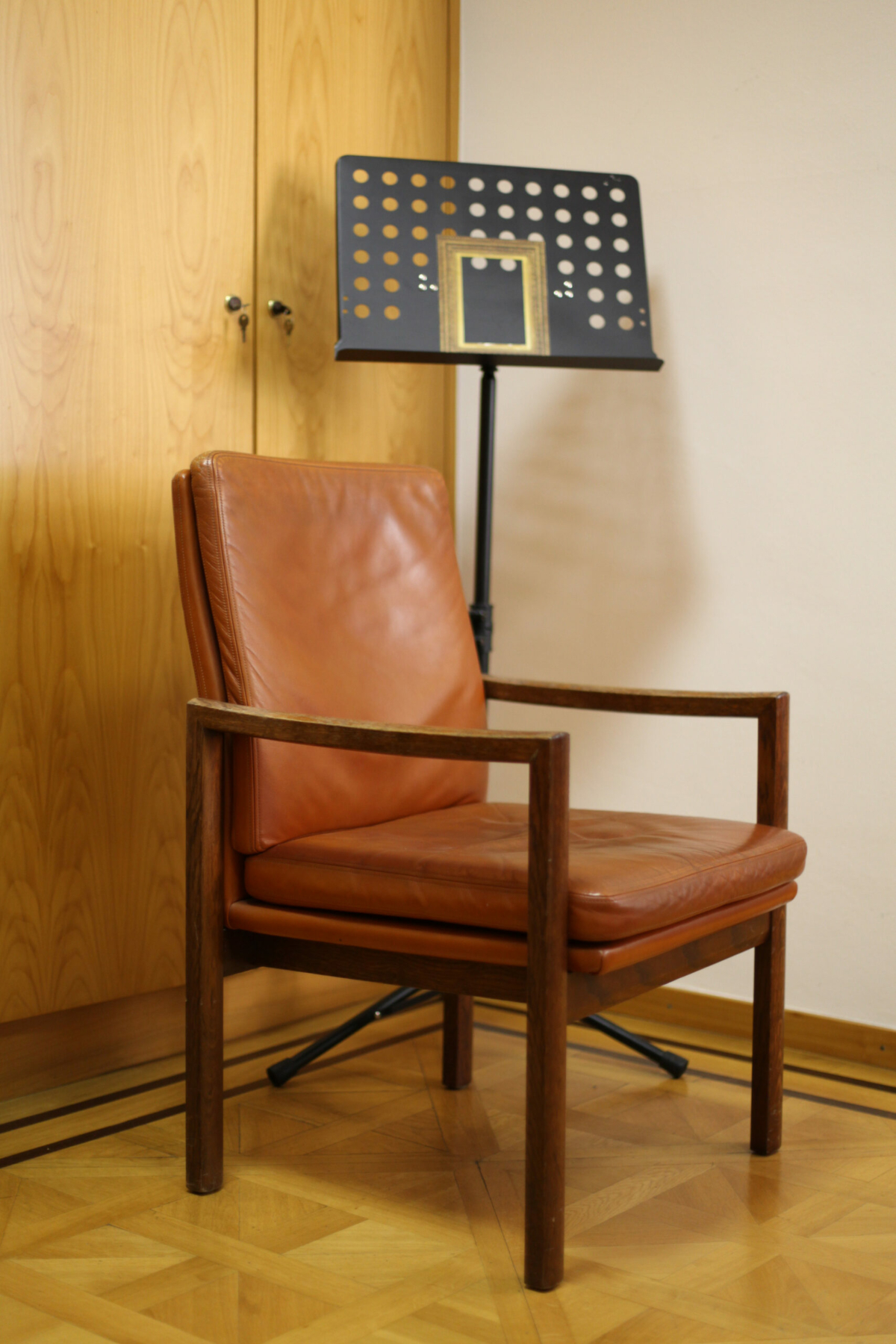
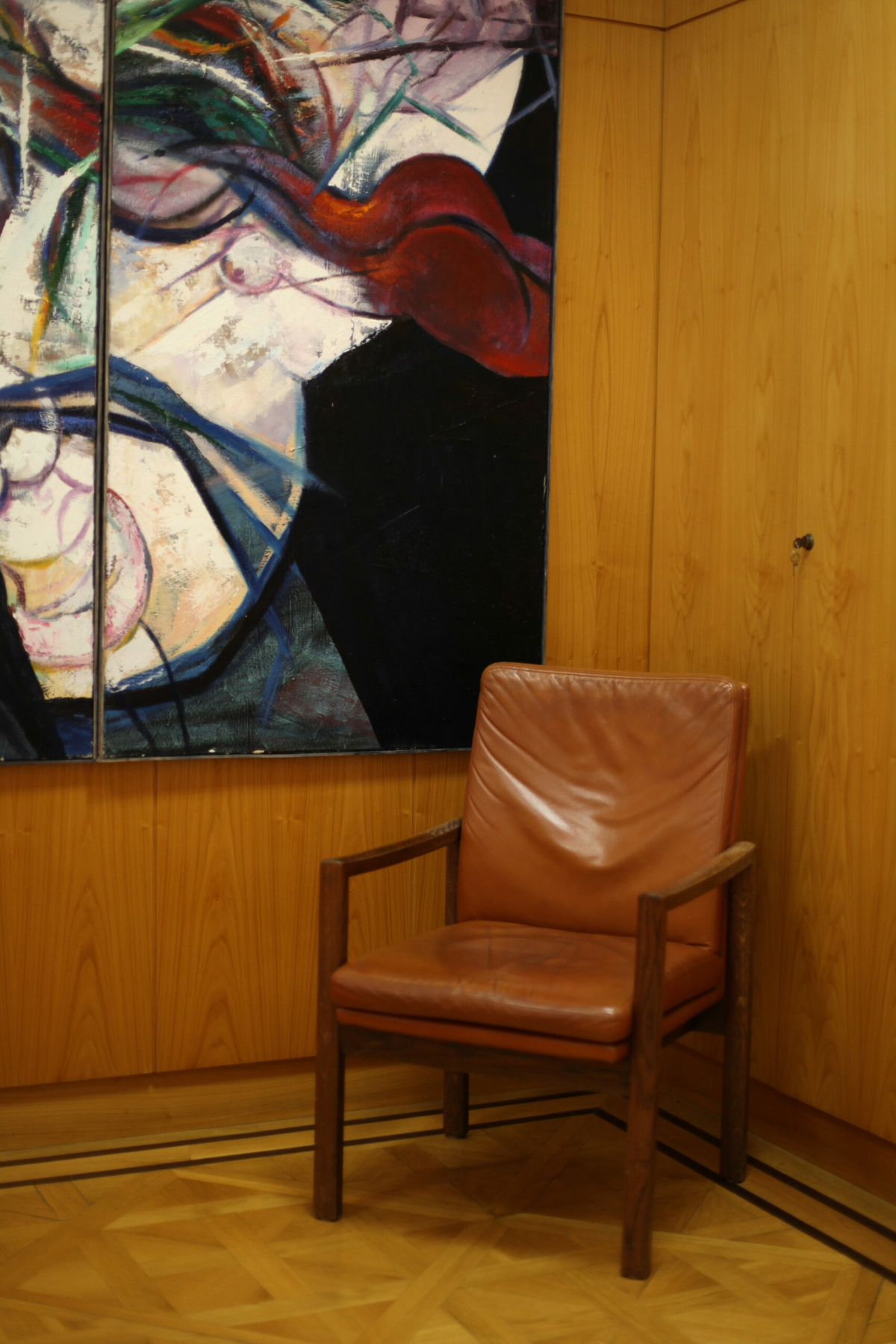
-
Actually, when did the idea for MONO VERLAG originate?
Originally I founded the publishing firm with my brother in 2008, when he lived next door to me. In order not to disturb the neighbors, I borrowed a soundproofed little room from a friend, who played the saxophone and had constructed the space himself. I put this room directly into my apartment. The cables ran through my brother’s apartment and communications took place via an in-house telephone. He directed, and I talked. As a TV editor, my brother quickly realized that the audio medium wasn’t enough for him. He got out, and I continued to manage the publishing company with a friend of mine, Kai Jelinek, who I knew from Germany.
In the beginning we produced a lot more commissioned work for other audiobook publishers and did less of our own titles. When the point came where we had to decide to either to do it right or let it be, destiny sent us in the direction of Roland Tomrle. Roland had been active within the publishing world for 20 years and wanted a new orientation. So, in 2012 we founded MONO VERLAG. We outgrew the initial set up and moved the company to Ziegelofengasse.
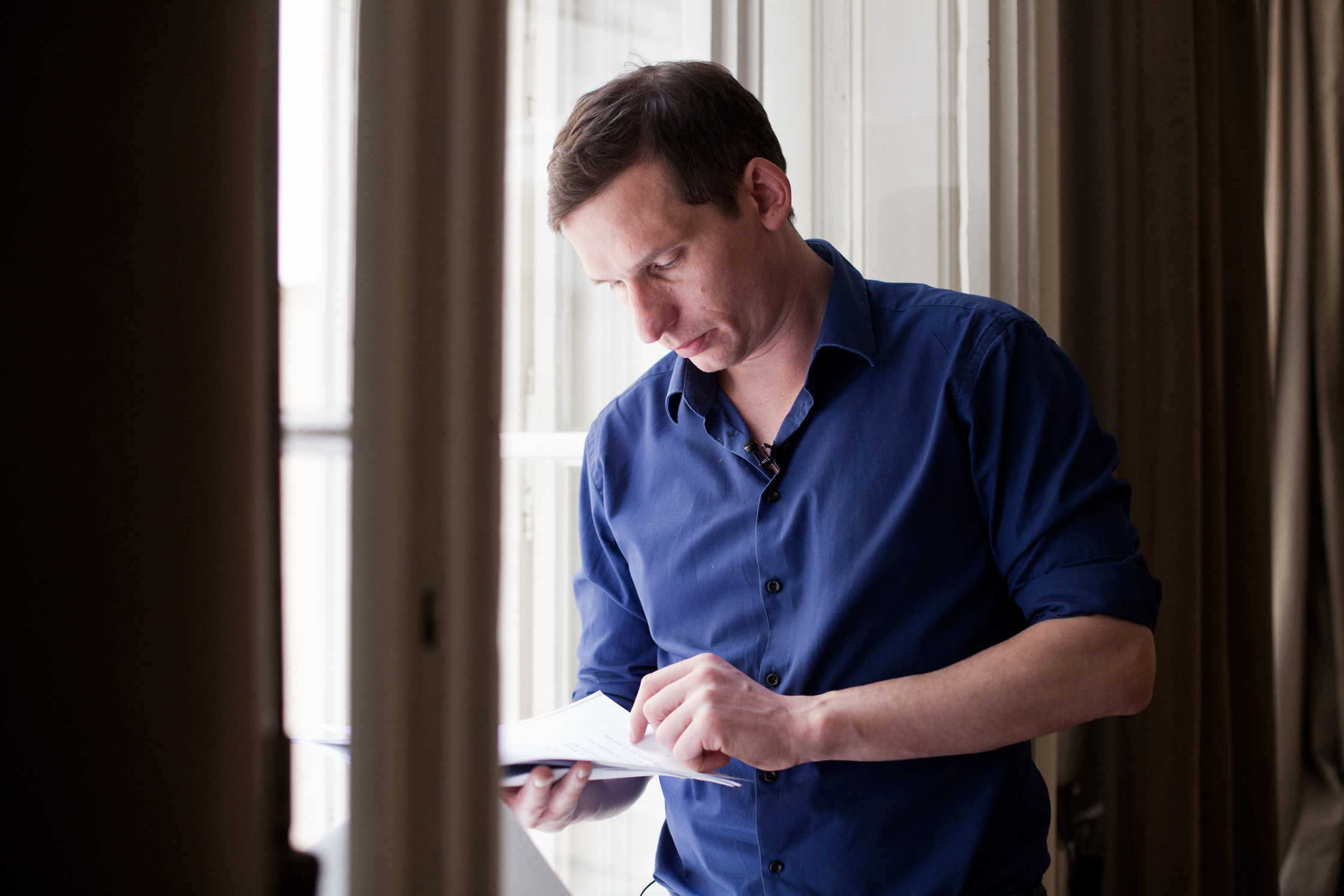
-
Is there a fixed division of tasks within the firm?
The three of us each think about the publishing program and consider who we would like to collaborate with. Roland is responsible for the administrative tasks, as an experienced editor he knows best how the branch works. Kai takes care of the technical part as a recording director, while he also cuts and edits. My role consists of doing the voice-overs for many projects and the initial presentation so to speak. I am sort of an overarching figure in our team, which is also connected to my duties in theater.
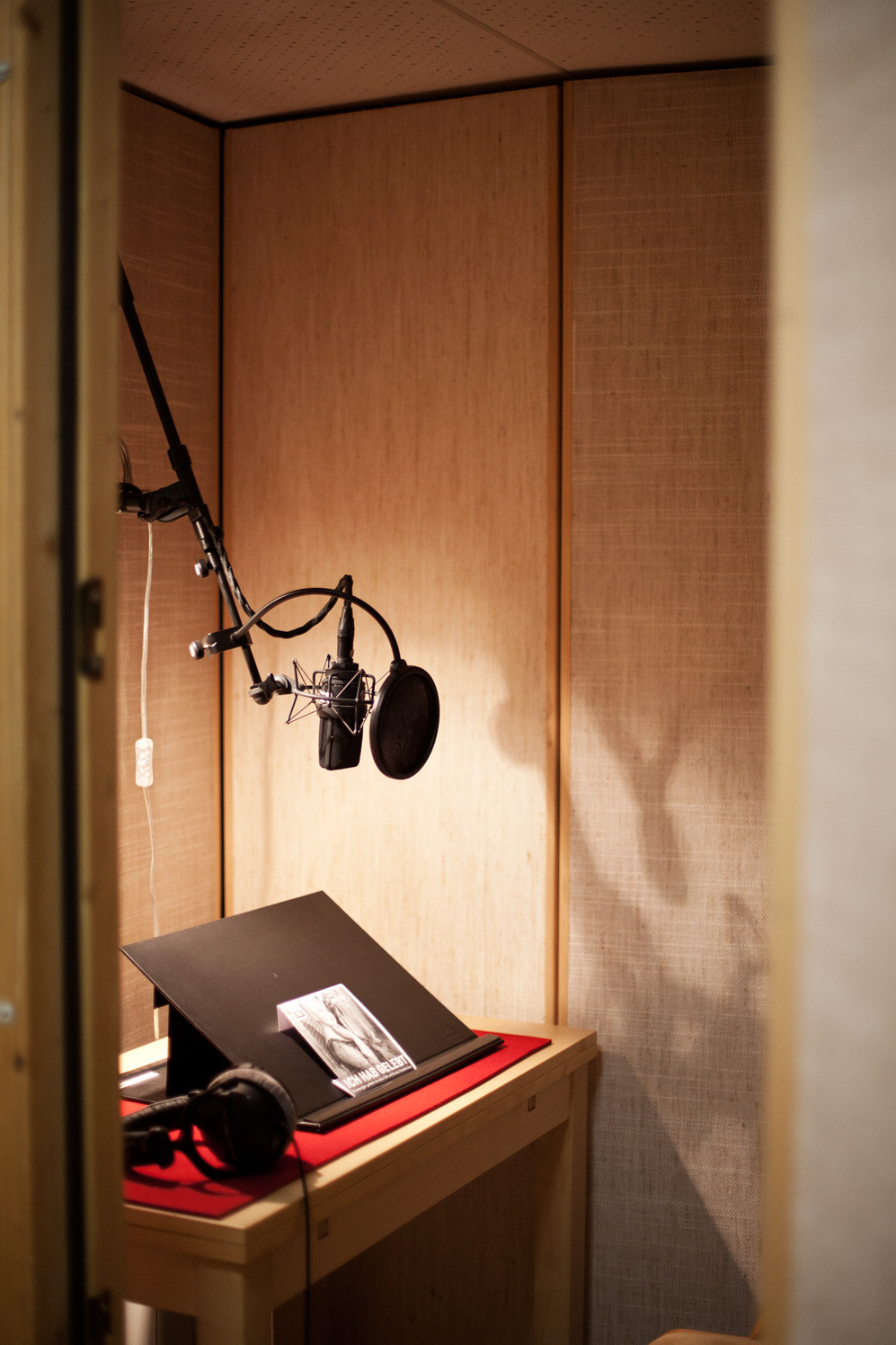
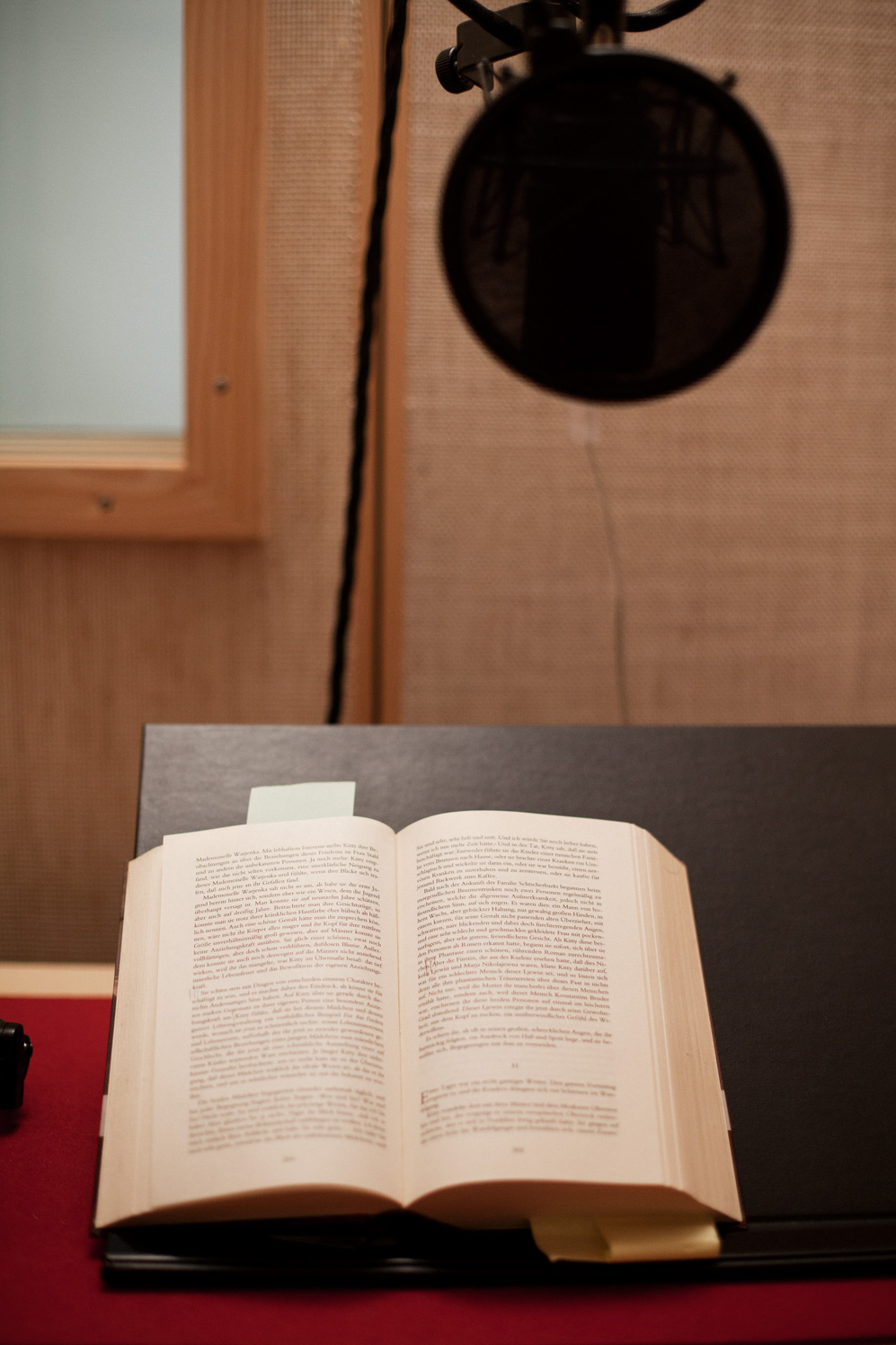
-
What distinguishes MONO VERLAG from other audiobook publishers?
We produce 30 audiobooks a year with a program strongly concentrating on Austrian themes, Austrian authors and voice-over artists. This way we can generally stand out from the German-speaking market. Perhaps that market is ten times as big. But concentrating on Austria has the big advantage of being able to work together with interesting people during productions who have great relevance within Austria specifically. Simultaneously there are titles that are especially close to our hearts, and those who make sure we can pay our rent. So far it has worked out (knocks on wood).
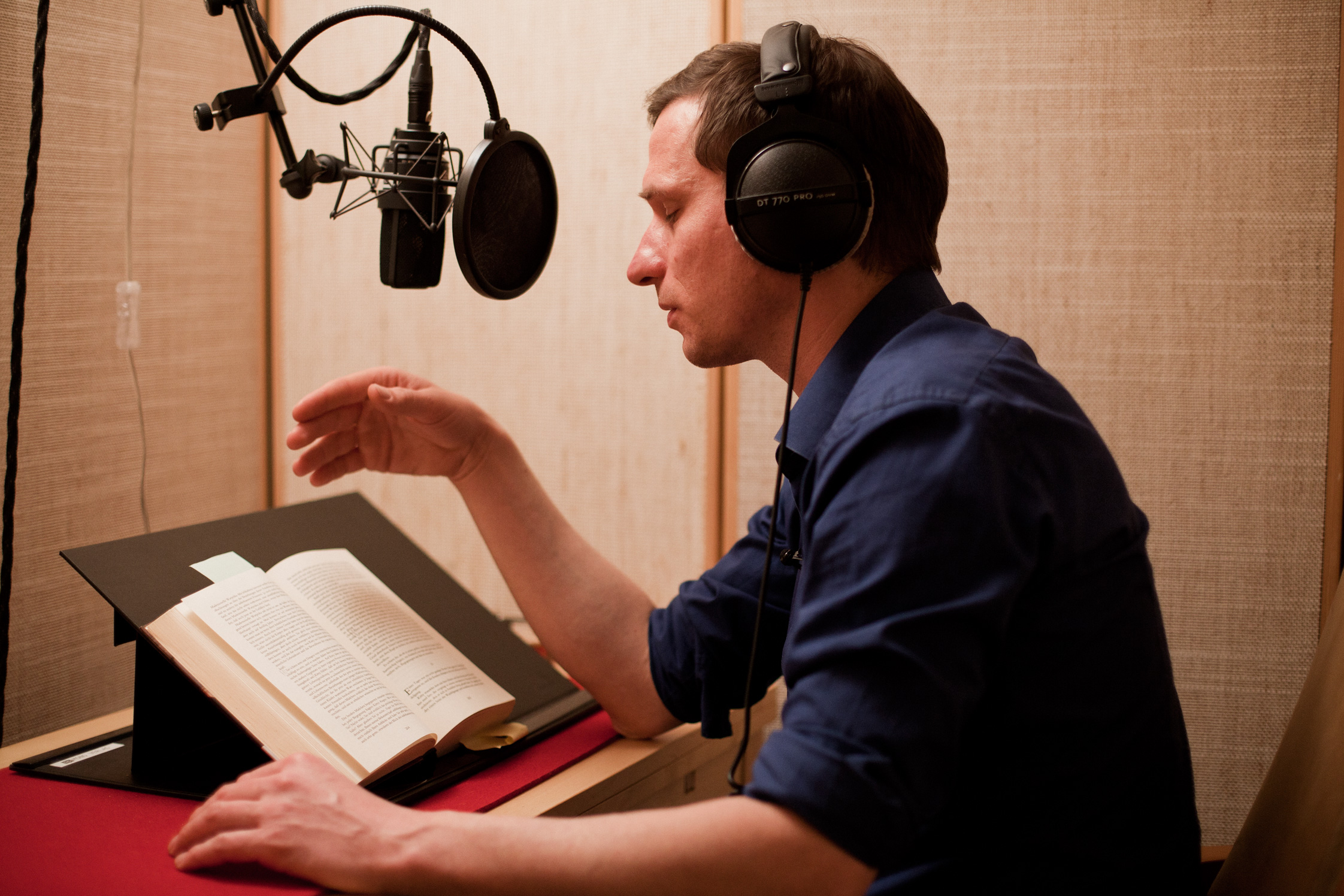
-
Are you present at the big book fairs?
Yes. During spring we were at Leipziger Buchmesse with 15 pieces, and another 15 at Frankfurt. I have to learn to plan in semi-annual steps, as the book world functions in this cycle.
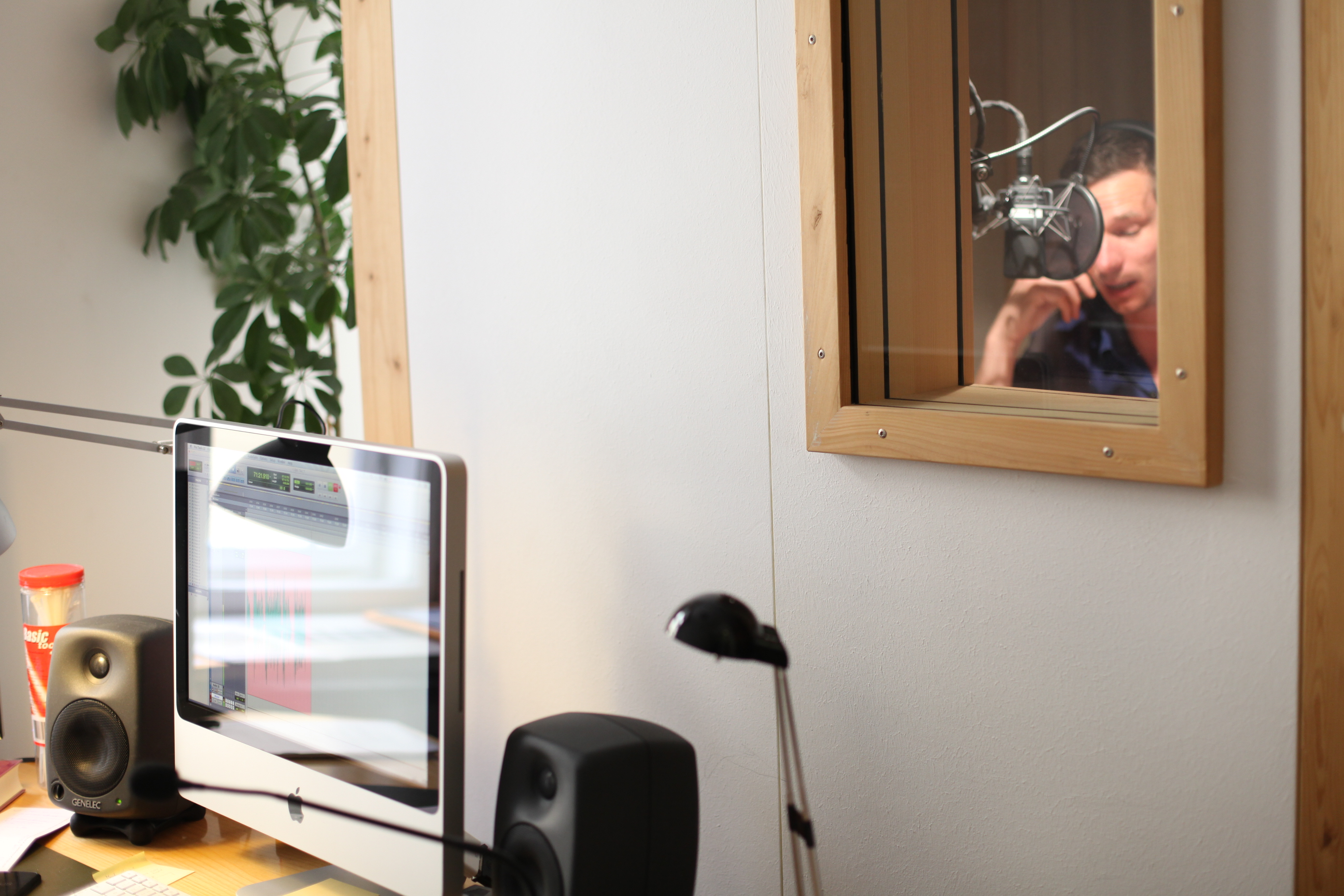
-
How do you see the economic downturn affecting the publishing firm? Do you think the creative field has suffered?
Yes, the publishing landscape is becoming increasingly more difficult. When we were establishing ourselves the business idea wasn’t the main focus. It was an idealistic project. This is why the support from the Vienna Business Agency was all the more helpful. We are able to obtain a lot of advice – which was also very necessary in order to construct our entire administrative arm. Two years ago we sat in 36 square meters, now we have moved to a bigger place – I think that’s a positive development.
A reason why we probably got funded by the Vienna Business Agency is due to the fact that there had never been a dedicated audiobook publishing company in Vienna – basically in Austria overall. In Germany in comparison, there are about 500. Many Austrian publishing companies obviously make audiobooks next to their normal publications now and then. A byproduct so-to-say. We were the first to decide to solely concentrate on audiobooks.
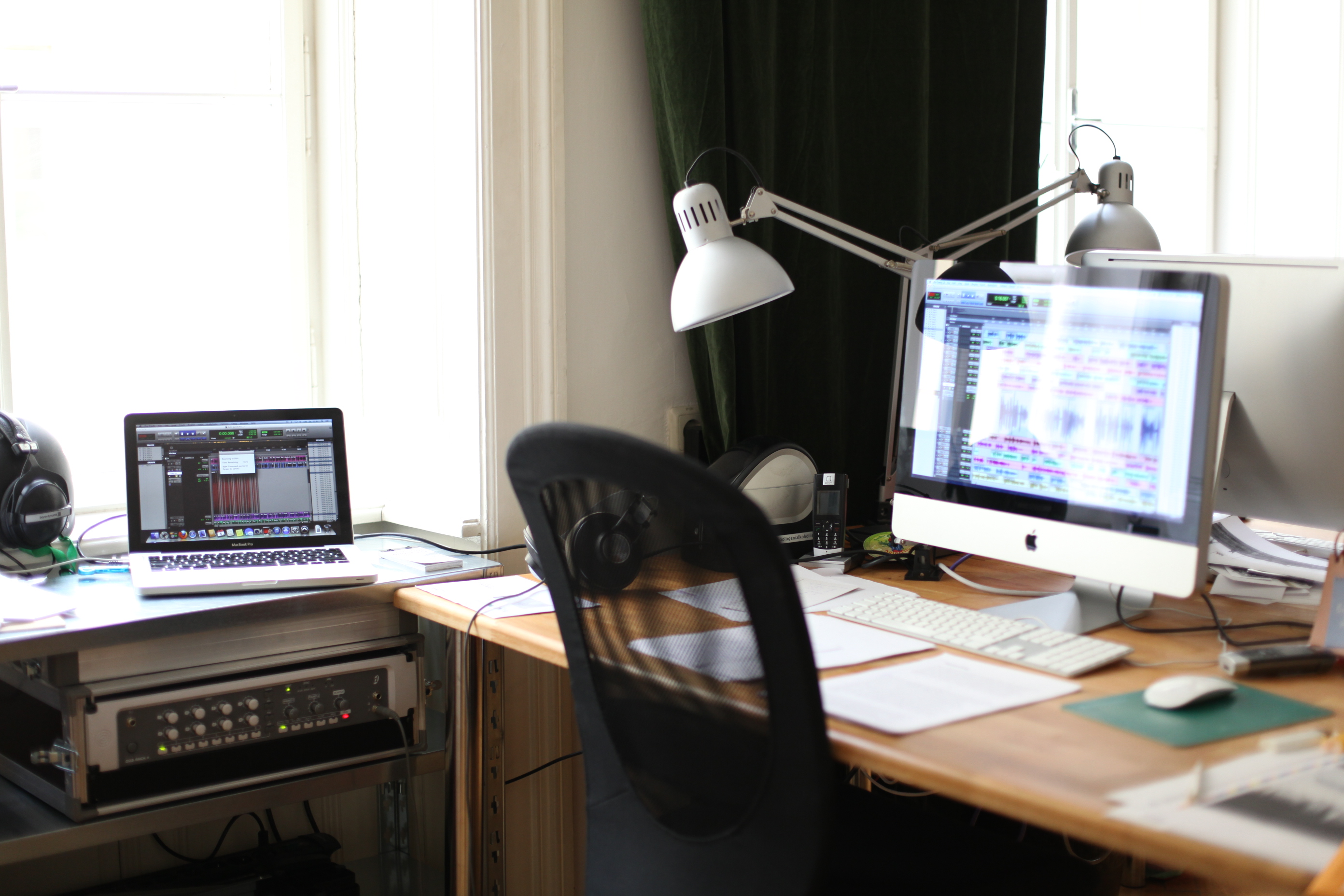
-
Are there any producers that request specific voice-over artists?
Yes. For instance, when creating an actor’s biography, it’s naturally important that the actor does the recording. It’s a bit less important when it comes to classics. For example, Stefan Zweig’s ‘The World of Yesterday’. In that case, the voice-over artist just had to fit the theme of the piece.
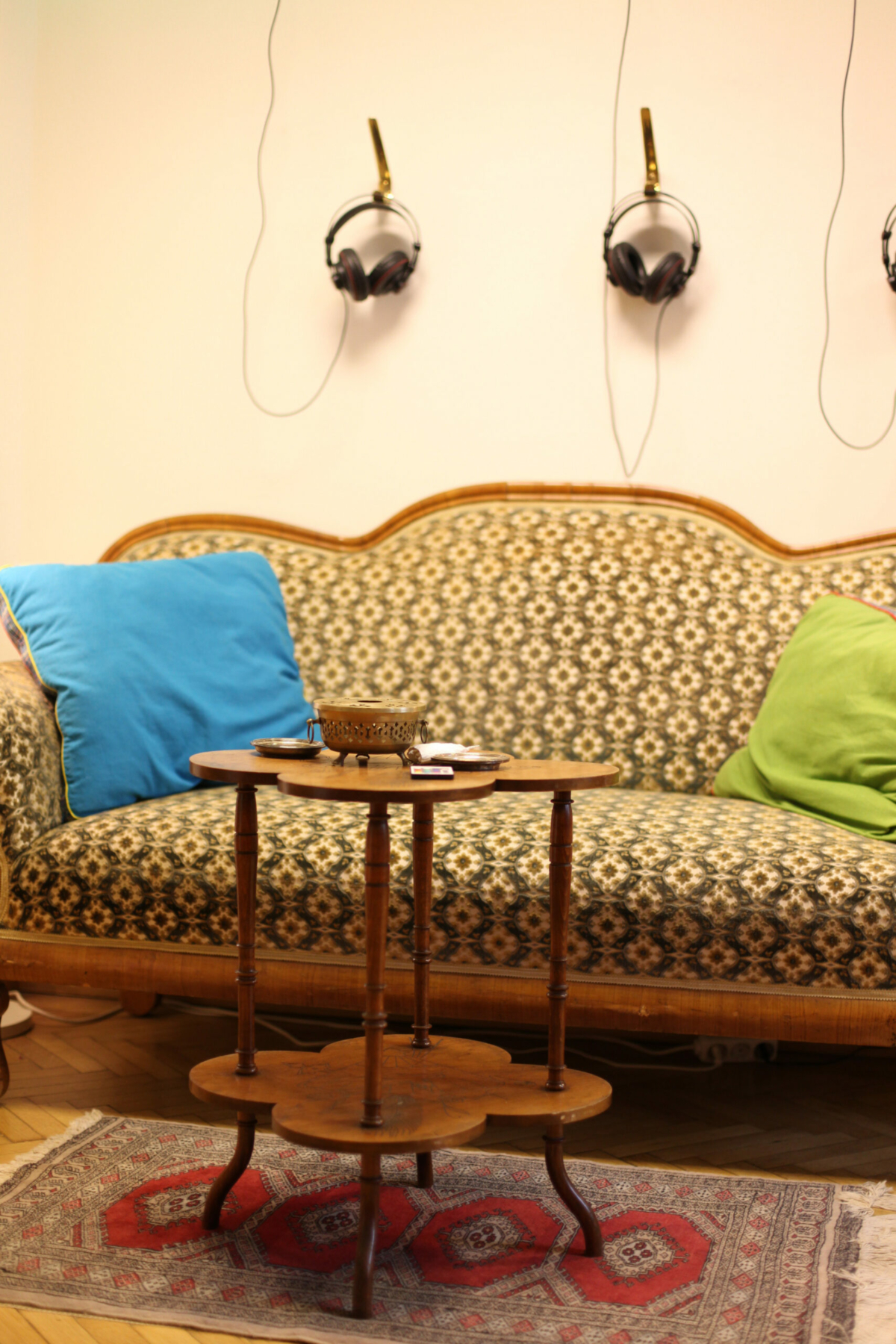
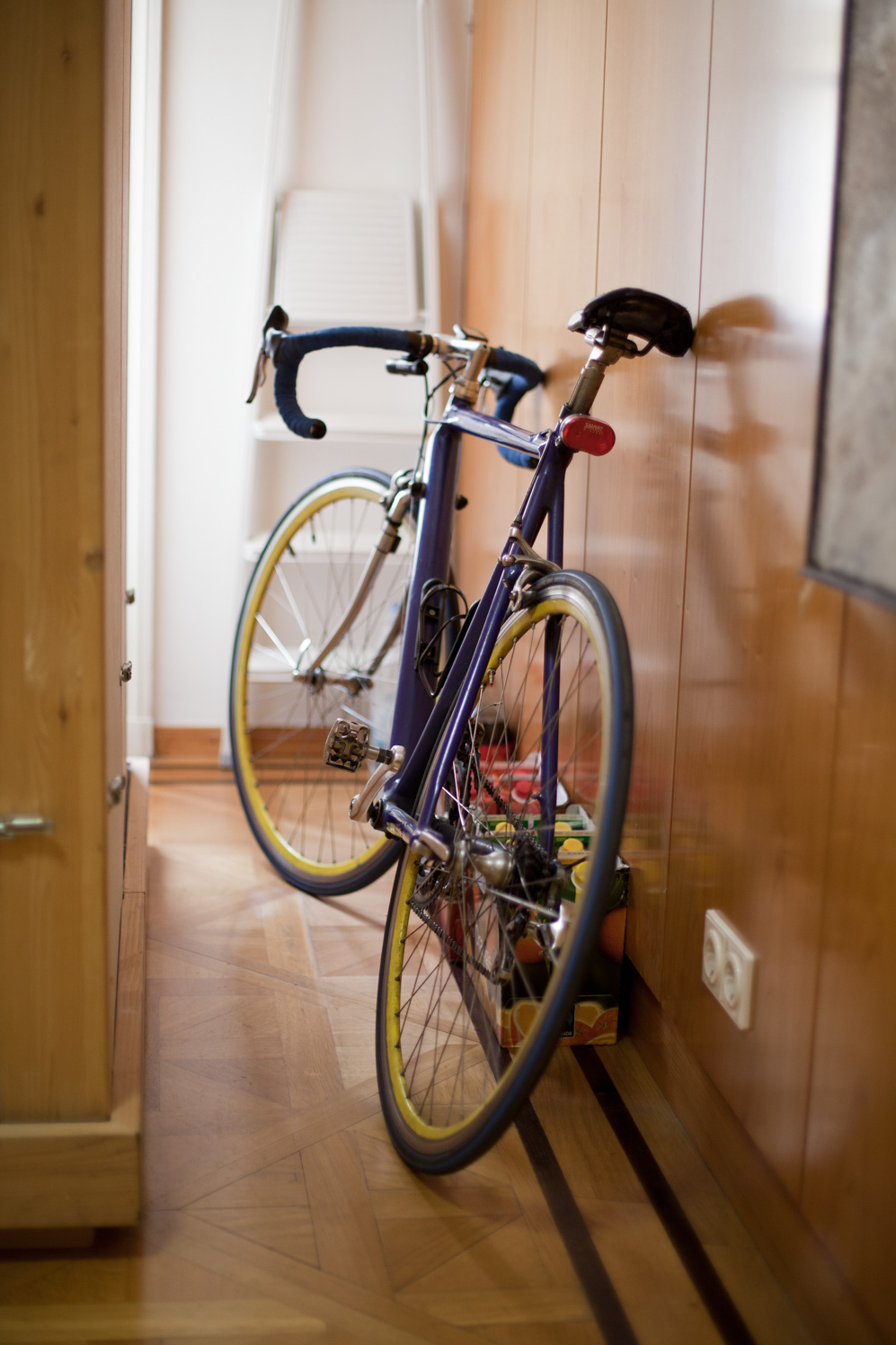
-
Are you active as a voice-over artist at MONO VERLAG?
Yes, that’s the beauty about being a co-owner of an audiobook publishing company: I can pick whatever topics I’d like to record.
I can take on irrational projects like Tolstoy’s ‘Anna Karenina’, which has a length of about 60 hours. Doing this with an external artist would mean digging deep into our pockets.
-
As a German native in Vienna, can you list your three favorite ‘Viennese’ words?
Hmm that’s a tough one. ‘Oida’ (dude), ’Naa’ (noo), ‘Biiitte’ (please).
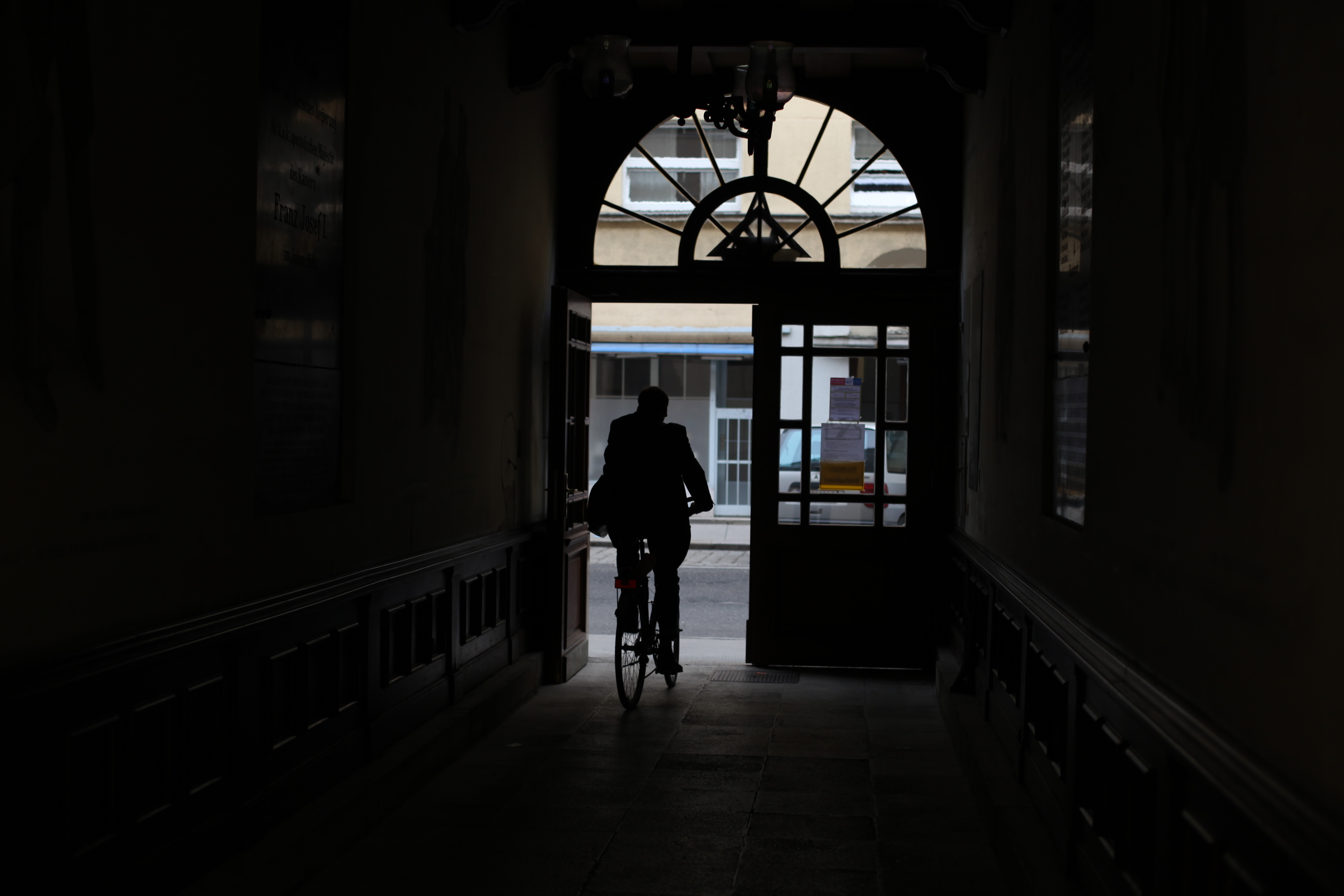
-
And where do you like to take your friends when they visit Vienna?
Vienna has so many beautiful corners. I love showing friends – or friends of friends – the Augarten or Karmelitermarkt. There is, of course, also the MuseumsQuartier, the Belvedere Castle, Schönbrunn, or the first district with some of the greatest theaters.
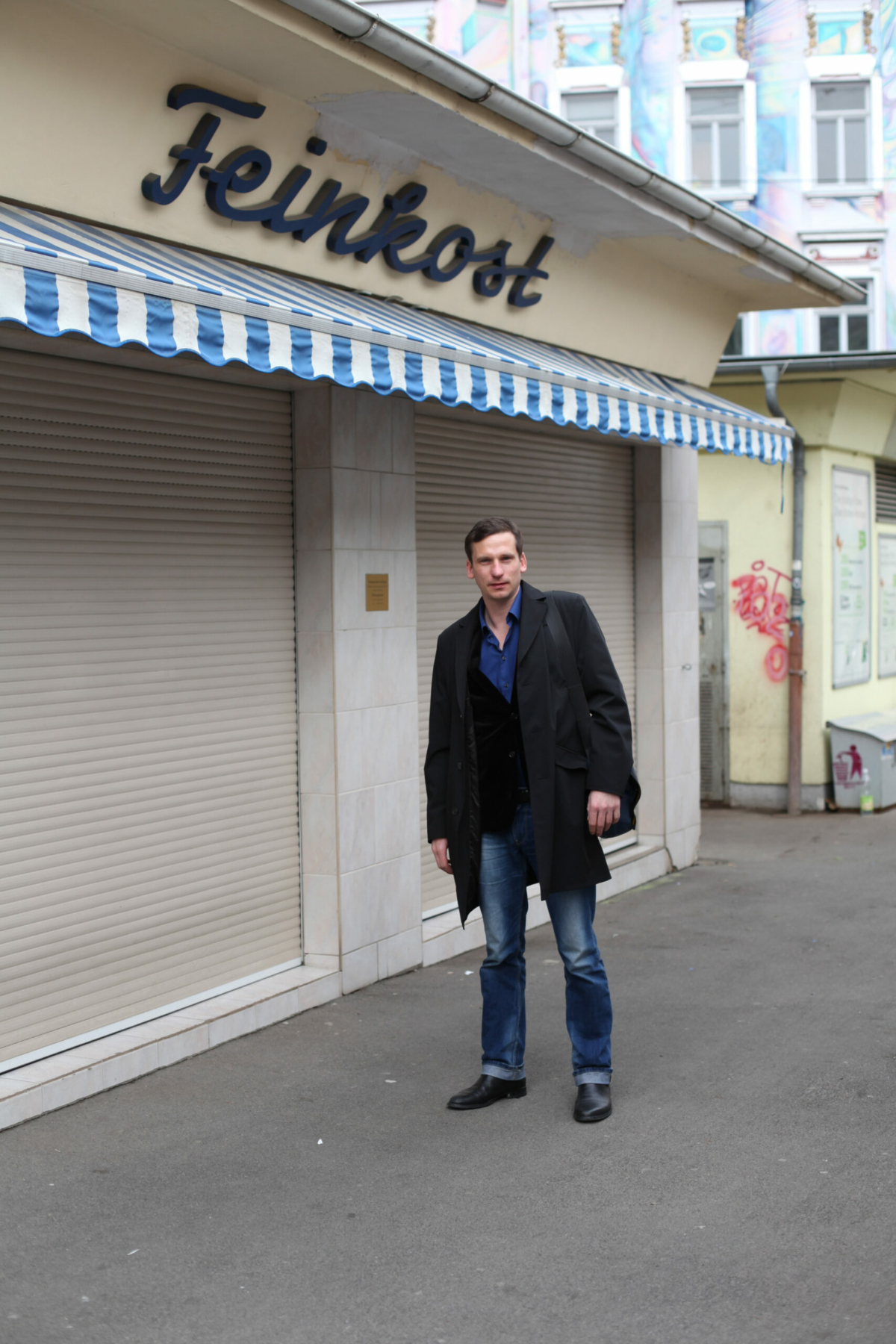
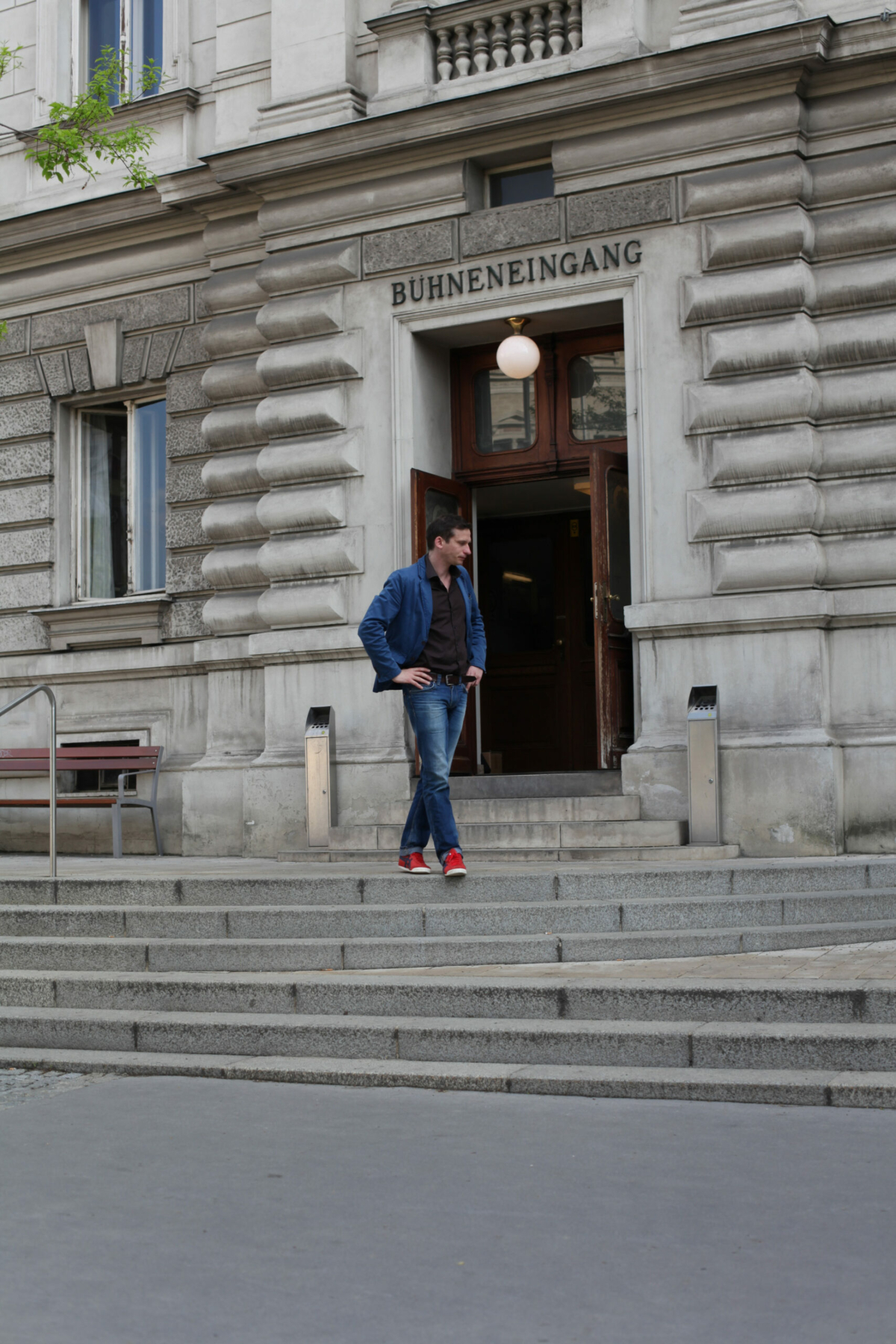
-
You started your career in Düsseldorf. Why then did you end up in Vienna?
After I had been in Düsseldorf for three years, there was a change of directors, all artistic contracts were terminated, and I was preparing myself to move to Berlin. At that very moment there was an opportunity to go to the Volkstheater in Vienna. I didn’t hesitate for one minute.
-
Are there any Austrian theater directors who may have influenced this decision?
Not really. The key reason was the combination of the overall offer and my attraction to Vienna.
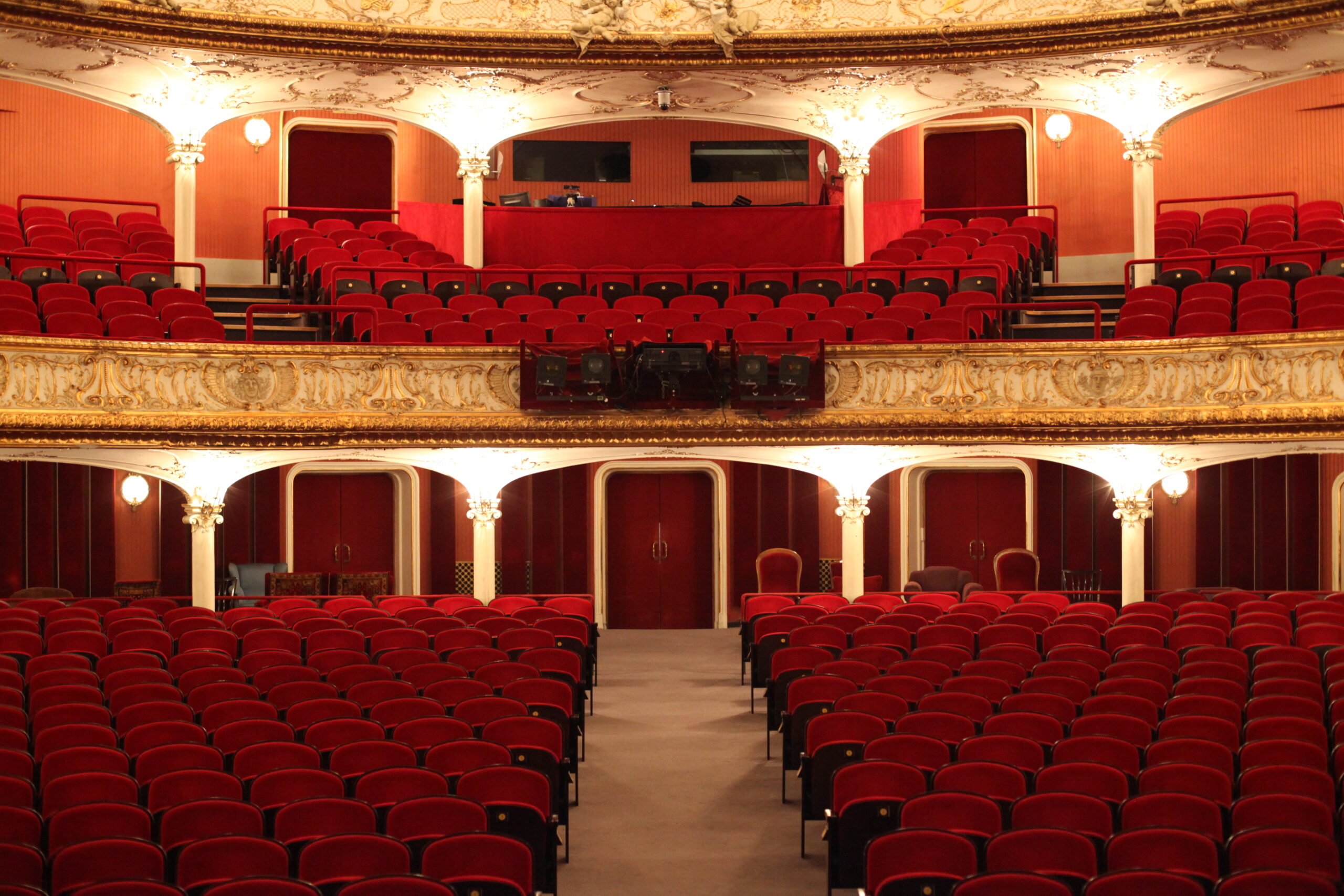
-
Because Vienna is a theater city?
Definitely. I am happy being able to live and work here. Friends and colleagues who perform in Germany and Switzerland also notice that theater has a different status here in Vienna. Theater seems to be closer to people and more integrated within their daily lives.
-
What do you think is the reason for this?
With the Burgtheater, Volkstheater, and Theater in Josefstadt, there are three big theaters in this city. The Burgtheater probably has the biggest reputation and tends to attract a younger audience than the other two theaters. The remaining houses – the small, medium and off-theaters – obviously each serve their individual audiences. Overall, there is something for everybody here.
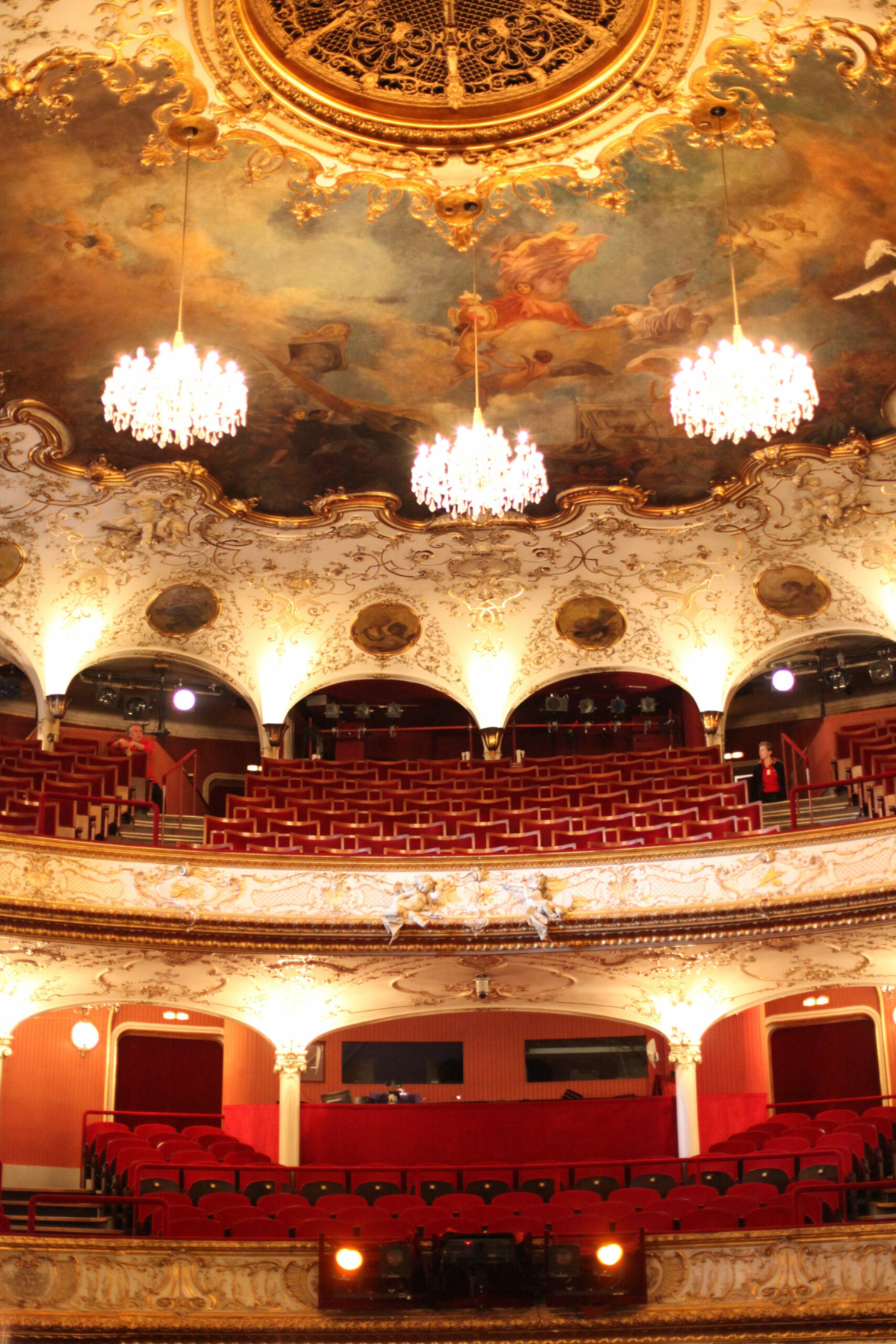
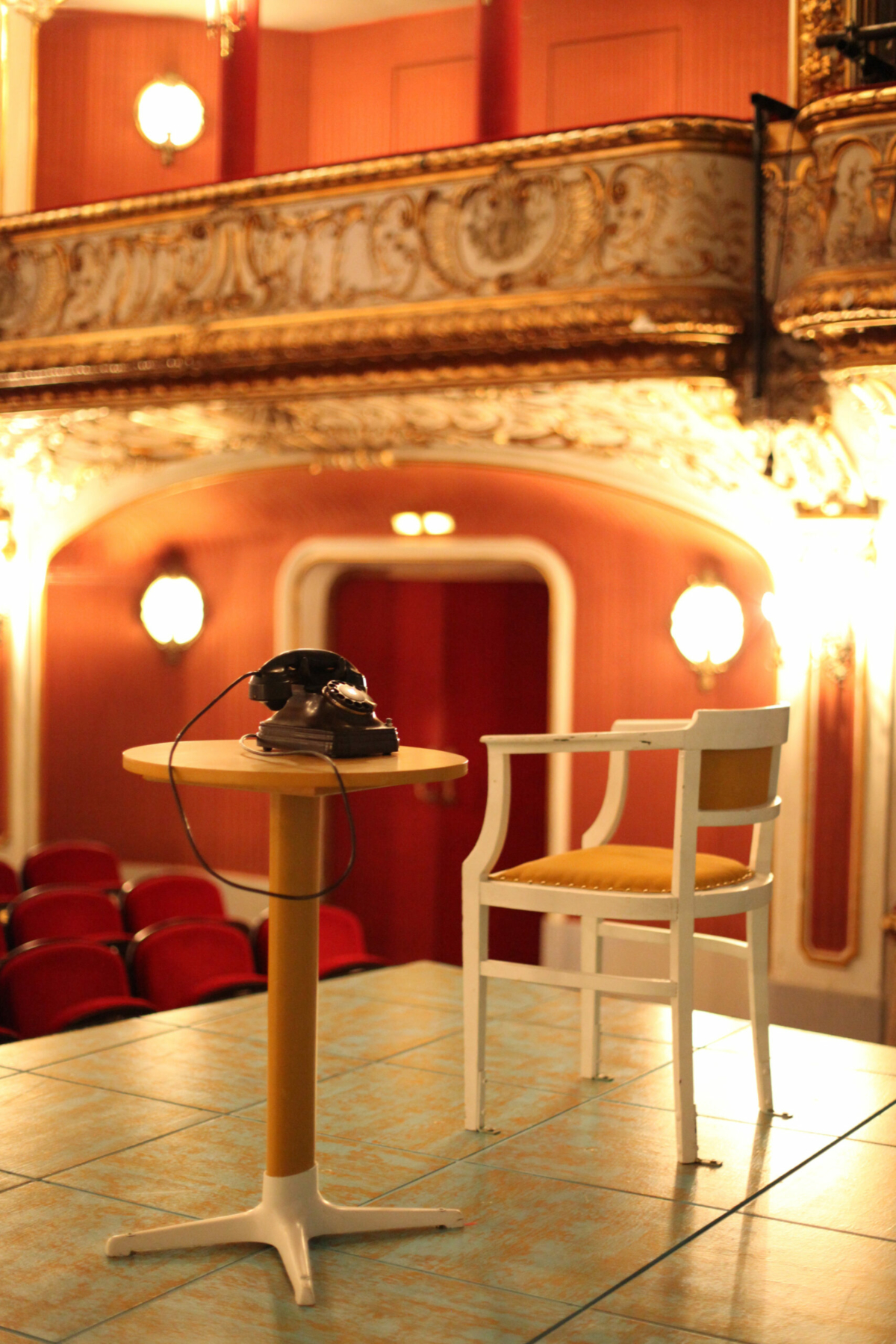
-
In 2013, for your role as Lewin in Anna Karenina, you were awarded the ‘Best Supporting Role’ by the Nestroypreis. Did this award bring about some sort of change for you?
Prizes are not at all important (laughs). No, I was very happy, of course – after all, the Nestroy is the prize in theater. But I didn’t get any richer because of it (laughs). It’s nice to be recognized, as this job by its very nature confronts you with self-doubt all the time. “Is what I am doing good enough, is it actually working,” etc. Also, I am very proud of being able to help shape the overall image of Viennese theater.
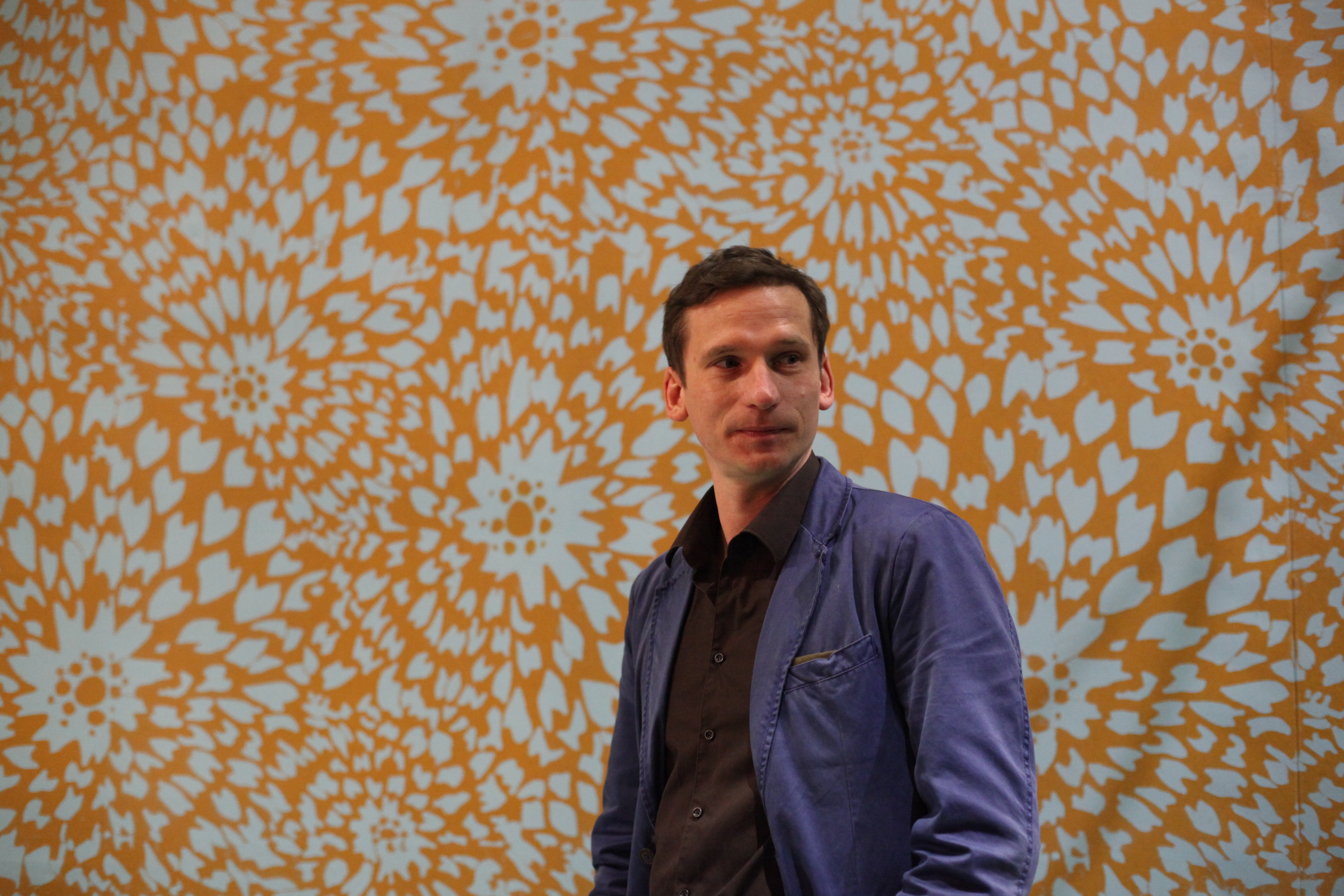
-
Can different roles and artistic performances be compared at all?
When it comes to actors, it’s subjective ultimately. One likes this, while the other likes that. When I look at something and I like it, then I should be allowed to rate it as ‘good’. When I look at something and I don’t like it, well, then I should also be able to classify it as ‘bad’. I have noticed that every time the Nestroypreis is awarded in Vienna there are so many good productions that don’t even get nominated.
-
You also act in movies and television series’. Where does your main focus lie?
Definitely in theater. I would like to do a bit more cinema. Some colleagues manage to do so, but for me one thing always overshadows the other. The moment I set dates for theater, opportunities for shooting a film immediately fall through.
-
Which Austrian directors would you like to work with?
There are many that I find very interesting. It’s not without reason that Austrian cinema is currently on a roll. I would be interested in working with Ulrich Seidl, even though I can’t watch his films. They always put me in a bad mood. Despite Haneke’s films causing an emotional dilemma for me, he would also be on my list. The most interesting Austrian productions are often in dialect – something I have to withdraw from unfortunately.
-
Is it a similar situation when it comes to theater?
No, standing as a German on a Viennese stage is not very difficult. I don’t notice any sort of attitude with regards to my nationality.
-
How does the work of an actor differ from a voice-over artist?
In comparison to studio situations like audiobooks, additional aspects come into play on stage such as: physicality, the stage set and production. I take great pleasure in both because I enjoy dealing with language and texts. And I feel very lucky with my two professions.
